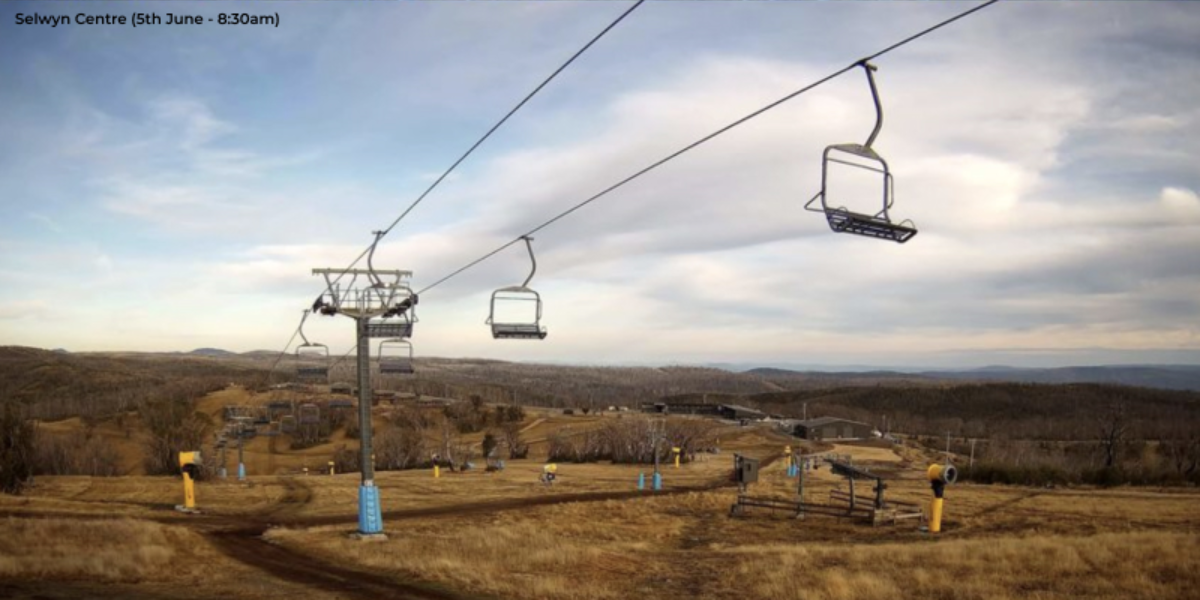The Bureau of Meteorology has moved from El Niño WATCH to El Niño ALERT, meaning that there is around a 70% chance of an El Niño developing this year, but it looks like the big dry is already threatening the ski season.
Bureau of Meteorology Senior Climatologist Catherine Ganter said climate models and indicators now meet the Bureau’s El Niño ALERT criteria.
“While the models show it’s very likely the tropical Pacific Ocean temperatures will reach El Niño levels during winter, we have seen some movement in the atmosphere towards El Niño conditions,” Ms Ganter said.
“While our El Niño ALERT criteria have been met, these changes will need to strengthen and sustain themselves over a longer period for us to consider an El Niño event,” she said.
The Bureau’s criteria for the definition of El Niño ALERT have been developed as part of a staged system to alert Australians on the increased likelihood of El Niño.
El Niño describes changes in the tropical Pacific Ocean that affect global weather and it occurs on average every 3 to 5 years. During El Niño, there is a higher chance of drier weather in eastern Australia and it’s more likely to be warmer than usual for the southern two-thirds of Australia.
“The Bureau’s long-range winter forecast is for drier and warmer conditions across almost all of Australia and the climate conditions in the Pacific Ocean are already factored into our forecasts,” Ms Ganter said.
“The long-range forecast for winter also shows an increased chance of below average rainfall for almost all of Australia and the move to El Niño ALERT does not change this forecast.”
“The Bureau currently forecasts Australia’s rainfall and temperature up to 3 months ahead. We use a climate version of our weather model to make these long-range forecasts and this model uses information about ocean and land temperatures, wind patterns and more.
“This model already takes into account the likely conditions in the Pacific Ocean, but also conditions elsewhere across the globe, such as the tropical Indian Ocean and how they are also likely to influence Australian weather and climate,” Ms Ganter said.
Ms Ganter said even if an El Niño develops, its impact can vary depending on where you are, as well as from event to event.
In Australia, changes during El Niño could include:
- Reduced rainfall for eastern Australia.
- Warmer daytime temperatures for the southern two-third of Australia.
- Increased risk of extreme heat.
- Increased bushfire danger in south-eastern Australia.
- Increased frost risk linked to clear skies at night.
- Decreased alpine snow depths.
- A later start to the northern wet season.
- Reduced tropical cyclone numbers.
The snow fields have already warned that the latest webcam images and upcoming weather forecast from the slopes of New South Wales and Victoria are worrying for snowsports enthusiasts, with very little snow cover on the ground. All major ski fields are set to open this long weekend, including Selwyn which will be open for the first time since it was significantly damages in the 2019-2020 bushfires. What little snow they do have is expected to be wiped out with rain and warm temperatures forecast.
“In the last few years we’ve seen varied early season conditions globally” said Edwyn Raine of Snow Season Central.
“Austria in Europe had a particularly slow start to winter with barren pistes in late December, while many North American resorts, such as Mammoth Mountain, California, have experienced record breaking annual snowfalls.”
“Unfortunately, this is just a sign of the times and we can only hope more snow is around the corner,” Mr Raine said.
More information about the El Nino ALERT is available on the Bureau’s website:
Climate long-range forecast: bom.gov.au/climate/ahead/
ENSO forecast: bom.gov.au/climate/enso/outlook
Climate Driver Update: bom.gov.au/climate/enso/
More about El Niño and La Niña: www.bom.gov.au/climate/about/australian-climate-influences.shtml?bookmark=enso
Like what you’re reading? Support The New England Times by making a small donation today and help us keep delivering local news paywall-free. Donate now

